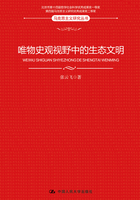Those that depend upon the assumption of the original point and uponstating as the cause what is not the cause,are clearly shown to becases of ignoratio elenchi through the definition thereof.For theconclusion ought to come about ”because these things are so”,and thisdoes not happen where the premisses are not causes of it:and again itshould come about without taking into account the original point,and this is not the case with those arguments which depend uponbegging the original point.
Those that depend upon the consequent are a branch of Accident:
for the consequent is an accident,only it differs from the accidentin this,that you may secure an admission of the accident in thecase of one thing only (e.g.the identity of a yellow thing andhoney and of a white thing and swan),whereas the consequent alwaysinvolves more than one thing:for we claim that things that are thesame as one and the same thing are also the same as one another,andthis is the ground of a refutation dependent on the consequent.It is,however,not always true,e.g.suppose that and B are the same as Cper accidens; for both ”snow” and the ”swan” are the same as somethingwhite”.Or again,as in Melissus” argument,a man assumes that to”have been generated” and to ”have a beginning” are the same thing,orto ”become equal” and to ”assume the same magnitude”.For because whathas been generated has a beginning,he claims also that what has abeginning has been generated,and argues as though both what hasbeen generated and what is finite were the same because each has abeginning.Likewise also in the case of things that are made equalhe assumes that if things that assume one and the same magnitudebecome equal,then also things that become equal assume one magnitude:
i.e.he assumes the consequent.Inasmuch,then,as a refutationdepending on accident consists in ignorance of what a refutation is,clearly so also does a refutation depending on the consequent.Weshall have further to examine this in another way as well.
Those fallacies that depend upon the making of several questionsinto one consist in our failure to dissect the definition of”proposition”.For a proposition is a single statement about asingle thing.For the same definition applies to ”one single thingonly” and to the ”thing”,simply,e.g.to ”man” and to ”one single manonly” and likewise also in other cases.If,then,a ”singleproposition” be one which claims a single thing of a single thing,a”proposition”,simply,will also be the putting of a question ofthat kind.Now since a proof starts from propositions and refutationis a proof,refutation,too,will start from propositions.If,then,aproposition is a single statement about a single thing,it isobvious that this fallacy too consists in ignorance of what arefutation is:for in it what is not a proposition appears to beone.If,then,the answerer has returned an answer as though to asingle question,there will be a refutation; while if he hasreturned one not really but apparently,there will be an apparentrefutation of his thesis.All the types of fallacy,then,fall underignorance of what a refutation is,some of them because thecontradiction,which is the distinctive mark of a refutation,ismerely apparent,and the rest failing to conform to the definitionof a proof.
The deception comes about in the case of arguments that depend onambiguity of words and of phrases because we are unable to dividethe ambiguous term (for some terms it is not easy to divide,e.g.
”unity”,”being”,and ”sameness”),while in those that depend oncombination and division,it is because we suppose that it makes nodifference whether the phrase be combined or divided,as is indeed thecase with most phrases.Likewise also with those that depend onaccent:for the lowering or raising of the voice upon a phrase isthought not to alter its meaning—with any phrase,or not with many.
With those that depend on the of expression it is because of thelikeness of expression.For it is hard to distinguish what kind ofthings are signified by the same and what by different kinds ofexpression:for a man who can do this is practically next door tothe understanding of the truth.A special reason why a man is liableto be hurried into assent to the fallacy is that we suppose everypredicate of everything to be an individual thing,and we understandit as being one with the thing:and we therefore treat it as asubstance:for it is to that which is one with a thing or substance,as also to substance itself,that ”individually” and ”being” aredeemed to belong in the fullest sense.For this reason,too,this typeof fallacy is to be ranked among those that depend on language; in thefirst place,because the deception is effected the more readily whenwe are inquiring into a problem in company with others than when we doso by ourselves (for an inquiry with another person is carried on bymeans of speech,whereas an inquiry by oneself is carried on quiteas much by means of the object itself); secondly a man is liable to bedeceived,even when inquiring by himself,when he takes speech asthe basis of his inquiry:moreover the deception arises out of thelikeness (of two different things),and the likeness arises out of thelanguage.With those fallacies that depend upon Accident,deceptioncomes about because we cannot distinguish the sameness and othernessof terms,i.e.their unity and multiplicity,or what kinds ofpredicate have all the same accidents as their subject.Likewisealso with those that depend on the Consequent:for the consequent is abranch of Accident.Moreover,in many cases appearances point tothis—and the claim is made that if is inseparable from B,so also is Bfrom With those that depend upon an imperfection in the definitionof a refutation,and with those that depend upon the differencebetween a qualified and an absolute statement,the deceptionconsists in the smallness of the difference involved; for we treat thelimitation to the particular thing or respect or manner or time asadding nothing to the meaning,and so grant the statement universally.















